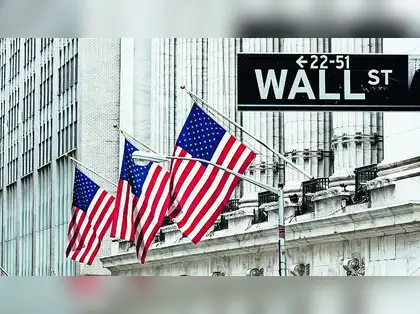Wall Street and European markets end week strong after US jobs data boost
Markets on both sides of the Atlantic rallied on Friday as new data showed U.S. job growth in April slowed less than expected, sparking cautious optimism about the resilience of the world’s largest economy amid mounting trade tensions driven by Donald Trump’s tariffs.
By early afternoon in New York, the S&P 500 had gained 1.5%, while the Dow Jones was up 1.3%. European markets closed with solid gains, buoyed by the latest employment figures showing 177,000 new jobs were added in the U.S. last month.
Although hiring cooled from March’s revised total of 185,000, the April figure still surpassed economists’ forecasts of 130,000, reassuring investors who feared a sharper slowdown. In the UK, the FTSE 100 climbed 1.2% to close at 8,596, extending its record-setting winning streak to 15 consecutive sessions. Germany’s Dax jumped 2.5% and France’s Cac rose 2.3%, lifted further by reports that China might re-engage in trade talks with the U.S.—a development that could ease escalating trade hostilities.
The FTSE has now nearly erased losses sustained earlier in the month after Trump’s sweeping tariff announcement rattled global markets. “The FTSE has surged higher, racing into a record winning streak, as fresh optimism pulses through markets,” said Susannah Streeter, head of money and markets at Hargreaves Lansdown.
She noted that the jobs data “added to hopes that the world’s largest economy is in a more resilient position to withstand the fallout from Trump’s tariffs. Expectations for a further easing in the standoff between the US and China have been high, with a feelgood factor dominating Friday trade.”
Despite the White House’s push for aggressive tariffs under the banner of revitalizing the U.S. economy, April job growth remained steady and the unemployment rate held firm at 4.2%. However, the Bureau of Labor Statistics (BLS) revised down earlier estimates, trimming a combined 58,000 jobs from February and March.
The strongest job gains last month came from the healthcare, transportation, and warehousing sectors. In contrast, federal government employment dropped by 9,000, as cost-cutting efforts led by Elon Musk’s so-called “department of government efficiency” continued to reduce public sector payrolls. Since January, federal jobs have declined by 26,000. The BLS also pointed out that its figures may understate the full impact, as they exclude workers on paid leave or receiving severance packages.

